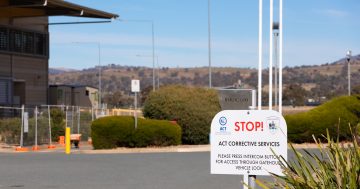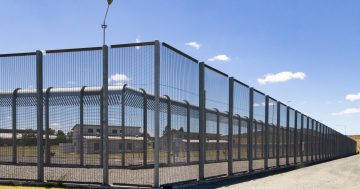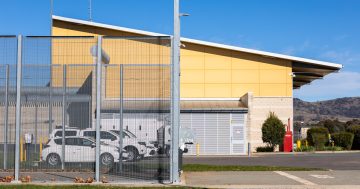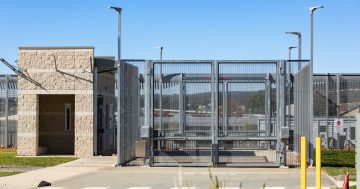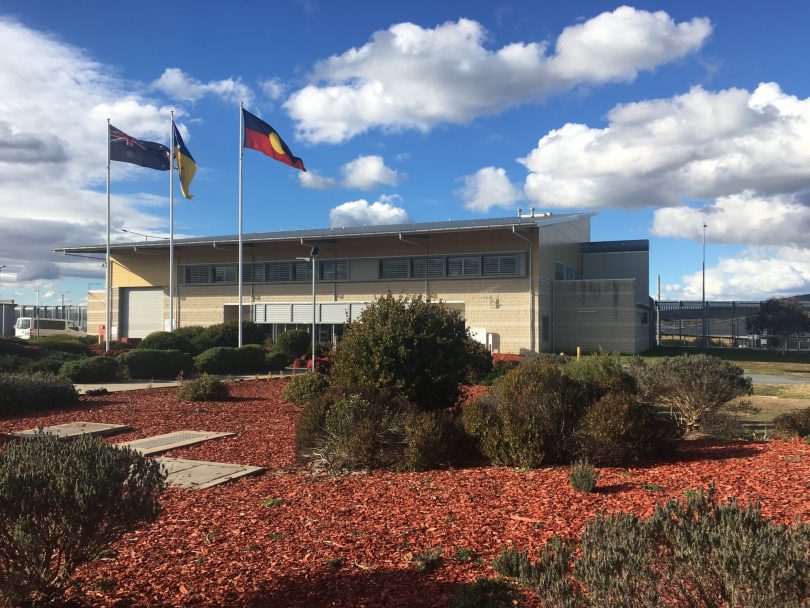
The Alexander Maconochie Centre: troubles will continue without change. Photo: File.
It can only be assumed that the ACT Government has relegated the territory’s jail to the backburner, if not given up entirely on the project.
The ACT Inspector of Correctional Services’ second Healthy Prisons report is a damning document that reflects poorly on Corrections Minister Mick Gentleman and his predecessor, Shane Rattenbury.
Indeed, Mr Gentleman has not uttered a word about the report tabled in the Legislative Assembly on Friday (25 November).
Asked for a response, the request was delegated to the Justice and Community Safety (JACS) Directorate, a disturbing trend from government ministers who don’t seem to want to take personal responsibility for their portfolios.
The report blasted the lack of activities, training and education at the Alexander Maconochie Centre, and the subsequent corrosive boredom that inevitably explodes into outbursts of destructive behaviour and violence.
It highlights the limits of a facility designed for about 250 that now has a population that can spike to more than 400. That design is now past its use-by date, the report says.
Women, about 7 per cent of the prison population, need new accommodation and feel unsafe.
The well-known overrepresentation of Indigenous people in the jail is compounded by the harsh treatment they receive and their alienation from culture and family.
JACS says 63 of the 68 agreed recommendations from the first 2019 report have been completed but the Inspector says the situation is getting worse, not better.
The pandemic has made a difficult job even harder but the report finds this is no excuse.
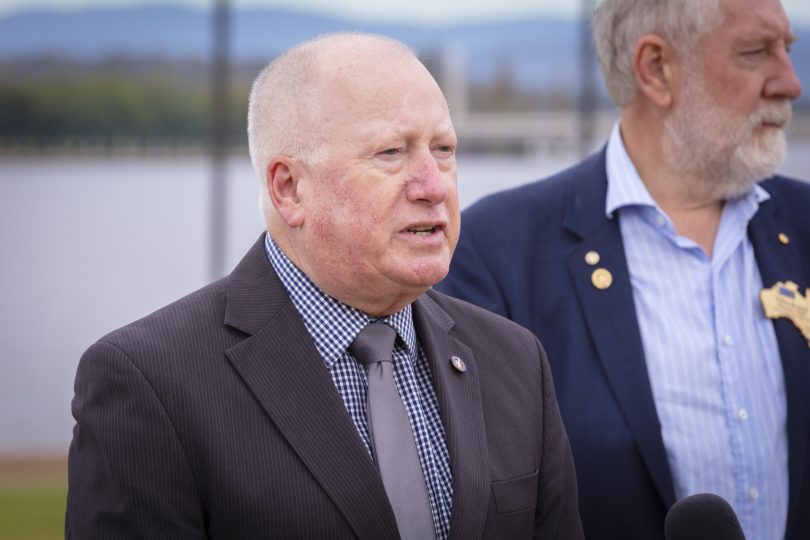
Corrections Minister Mick Gentleman has not said a word about the report. Photo: Thomas Lucraft.
There has not been an education provider for more than a year, prisoners spend too much time idle in their cells and the prison’s management practices appear to play a role in this.
The only positive sign is that a new stream of activities is on the horizon.
JACS insists that progress has been made to improve outcomes for staff and detainees despite the clear evidence of the opposite.
It says the jail’s purpose is to “deter and rehabilitate”, but seems resigned to a mission very much less than the lofty, human rights-compliant vision former chief minister Jon Stanhope had for it.
“While we all wish that we didn’t have to detain people, it remains an unfortunate necessity,” JACS said.
“That being said, the Government is absolutely committed to ensuring the wellbeing of those detained in the AMC.
“The ACT Government will carefully consider this report and how the recommendations can support improvements already under way at the AMC.”
It is hardly an acknowledgment that the AMC is not just in need of reform but the funding to expand its accommodation and facilities, and pay for work, training and education so crucial to any hope of rehabilitating anybody.
Prison reform is not a popular cause. There are not many votes in making life better for those on the inside. Voters appear to be much more open to throwing more people into jail and longer sentences than notions of a humanitarian approach to incarceration.
Yes, there need to be consequences for criminal behaviour, and dangerous offenders have to be removed from society.
But sentences end, prisoners re-enter the community, and the cost of the justice system being a revolving door is immense.
Rehabilitation leading to a reduction in reoffending benefits us all and makes communities safer.
The Government makes all the right noises about this – justice reinvestment, transition programs, reducing recidivism – and the budget did include $11m over four years to reduce the number of Indigenous people behind the wire but the AMC itself just seems too big a problem to fix.
A report like this should have the Minister worried about his future, but with little public sympathy for the AMC’s detainees and other, far more important priorities for the Government, life will move on.
But without action, the likelihood of more riots increases, as does the probability that the next report will only repeat itself.













